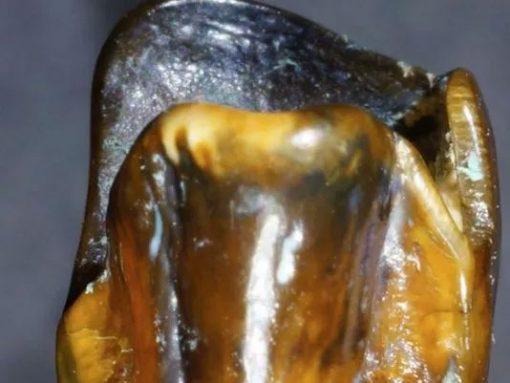Scientists Discover 9.7 Million Year Old Teeth That Could Change History
A bit over a year ago a group of archaeologists was in a town called Eppelsheim in southwestern Germany digging at a site where the Rhine River used to flow. During their excavation, the scientists discovered two ancient teeth. The news of the discovery is only making headlines this week because the discovery was so significant the team had to ensure their information was correct before publishing.
The two teeth were discovered in the old river bed. The sediments in the area are said to be well known in science and to be about 10 million years old. The teeth that the team found are about 9.7 million years old and are said to be perfectly preserved. They are no longer white and have taken on an amber-like color over the millennia.

The big deal with this discovery is that the teeth are from a great ape with a relationship to Homo sapiens. The teeth are comparable to teeth found in East Africa from subjects known as Ardi and Lucy. The canines of those East African samples are said to look very similar to the ones found in Germany last year, but the teeth or much, much older than those East African discoveries thought to be 5 million years old on the high end.
The scientists have no idea where this great ape came from and study of the find is ongoing. The teeth were on display in a museum in Mainz last weekend and will be viewable until mid-November in the great exhibition in the Landesmuseum in Mainz.
The team has been digging in the same site for 17 years and this find at the end of 2016 is the most significant to date. Professor Herbert Lutz says that he did not expect to make a discovery of this caliber.
SOURCE: USA Today
